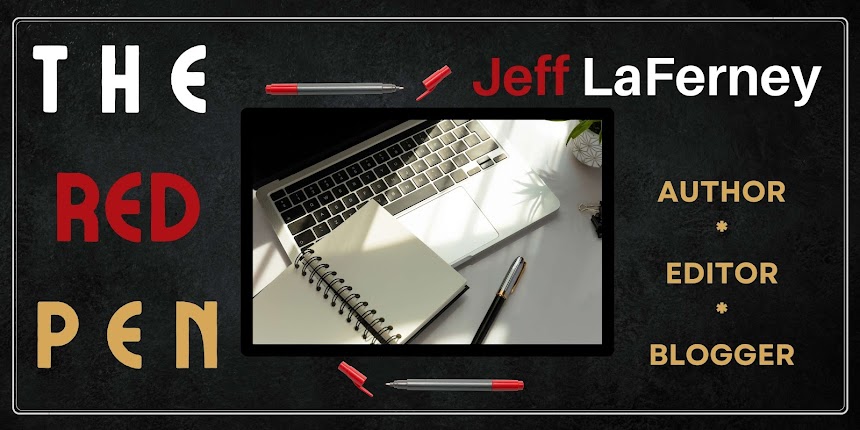Friedrich Nietzsche said, "When one has
finished building one's house, one suddenly realizes that in the process one
has learned something that one really needed to know in the worst way—before one began." I am a member
of a unique club—the one filled with writers who have stories in their heads. They
are stories that we feel are worth reading, but along the way, we have
spelling, grammar, and punctuation that are part of the product which are not separate from the swirling, creative
ideas. Our readers need those things to be accurate so they can understand the
prose. I think Ernest Hemingway had the proper perspective. He said, "My attitude toward
punctuation is that it ought to be as conventional as possible. The game of
golf would lose a good deal if croquet mallets and billiard cues were allowed
on the putting green. You ought to be able to show that you can do it a good
deal better than anyone else with the regular tools before you have a license
to bring in your own improvements.” Well, a goal of mine for this blog is I
want to help by telling you about those conventions that Hemingway was talking
about—but maybe in an unconventional way. While practicing my advanced googling
skills (and I can find anything on the internet, including rules for
punctuating dialogue), I came across a blogging quote. Irving Stone said, "There are no faster or firmer friendships than
those formed between people who love the same blogs." Actually, he
said "books," but I took a
little writer's liberty because…well…who is ever quoted about blogs? I’d like
to welcome you to my blog. I hope you “love” it, and I hope it helps you.
Let me continue
by saying that I believe that we writers need to be conscientious of our own
craft. “If you take responsibility for
yourself,” said Les Brown, “you will develop a hunger to accomplish your
dreams.” Writing without consideration of the rules of the craft is akin to
an athlete playing his or her sport without knowing the rules of the game. The
athlete is responsible for learning the rules that govern his or her craft. The
same is true for a writer—at least for a responsible one. “The difference between people who believe they have books inside of
them and those who actually write books is sheer cussed persistence—the ability
to make yourself work at your craft…every day,” said Jennifer Weiner.
I know what
you’re thinking. “When are you going to
get to the rules, oh philosophical one?” you ask.
My reply to you?
“Let me use Chris Bradford’s words instead
of my own. ‘Impatience is a hindrance. As with all things, if you attempt to
take shortcuts, the final destination will rarely be as good.’” You see, oh
impatient one, I’ve already been demonstrating the rules as I’ve gone along;
however, I will additionally emphasize three rules to complete my first blog
entry.
1.
Put
your commas and periods before you
insert quotation marks. This is true for
split quotations too (see the Les Brown quote above). Ex. 1 “Those are my principles, and if you
don’t like them…well, I have others,” said Groucho Marx.
Ex.
2 Ambrose Bierce said, “Speak when you are angry and you will make the best
speech you will ever regret.”
2.
The
dialogue tag is part of your sentence. It doesn’t start with a capital letter
unless there are other capitalization rules involved (like I is capitalized or a proper noun is capitalized). Wrong: “Men who don’t understand women fall into two
groups—bachelors and husbands.” Said Daniel Tosh. Correct: “The trouble with being punctual is that nobody’s
there to appreciate it,” said Franklin P. Jones.
3.
If
there is a quote or another reason to use quotation marks (like the title of a
short story) inside a quote, use single quotation marks. Otherwise, always use
the normal double quotes. Ex. Stacey
Rourke said, “Jeff LaFerney’s short story, ‘A Race to Stop a Murder,’ is in my
Anchor Group anthology called Paranormal
Days Gone Awry.”
There is more to quotation marks than I’ve just
said, but I’m hoping to have further blog posts, so keep an eye out for The Red
Pen, and if you have questions or comments, they are certainly welcome. Have a
great day!

Ah yes, the master of the red pen...and the reason you are my editor!
ReplyDeleteGreat post Jeff!
I like to think that I have a general grip on the basics of grammar...but then I look at something I've written and realise that everything is mucked up.
ReplyDeleteThere really should be more quotes about blogs. I learn so much through my fellow literary bloggers.
I had a head ache the other day with dialogue...if dialogue comes after a beat instead of a he said, is it a period? I went with period, but would feel better if you said I was correct.
ReplyDeleteEX: She rolled her eyes. "I know how to punctuate."
Is that right?
You are right, Elizabeth. That isn't a dialogue tag. It's a complete sentence.
ReplyDelete